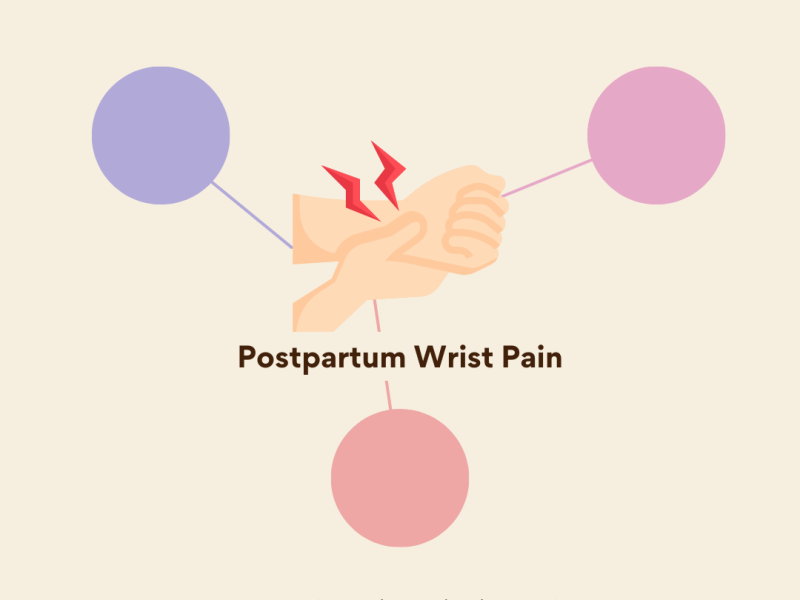Apple cider vinegar (ACV) is so hot right now. There are claims that it can help you with a myriad of issues, including weight loss, but is is true? How does ACV help you, or does it do anything at all? Lets take a look at the evidence that exists around it.
*Disclaimer: This blog is intended for informational purposes only. The information on this blog should not be used as a substitute to medical advice or medical treatment. As always, your Primary Care Provider, a doctor, or another health professional is your best resource for specific questions and medical advice. If you believe you or a loved one are experiencing a medical emergency, please contact 911.*
What is ACV?
Like – the vinegar I add into my recipes?! Yes. Vinegar (in general, not just ACV) has been around as a “cure” for many ailments for some time – I’m talking Hippocrates old. I’ll get into that more in a second.
But yes, the ACV you hear about is just ACV – some people make it easier to take now by putting it in a capsule formulation so you don’t just have to take a spoonful of ACV – as vinegar is definitely an acquired taste and some people don’t like it (not sure how – I love vinegar, though not straight ACV necessarily).
Vinegar comes in many different formulations but the basics behind its creation are the same. It is a fermented liquid – it ferments from a carbohydrate source (such as from fruit, or as it was first made – wine) to alcohol and then is oxidized and exposed to a bacteria called Acetobacter to ferment further for some time (could be weeks to months, it depends on the vinegar). The result of this process is vinegar!
Notably – vinegar also contains vitamins, minerals, and more – it is not just diluted acetic acid (so the U.S. FDA advises not just diluting acetic acid and putting it on your food, as an FYI!).
Huh, what?! If you are a visual learner, this might be helpful. In short: it is a fermented form of alcohol. The name “vin aigre” actually means sour wine.
The history of vinegar use for medicinal purposes
Vinegar has been documented in history for, as I mentioned, a very long time. The first known documentation of its use arises from around 5000 B.C. Medicinally, it seems to have been used most notably by Hippocrates – that is the guy from the Hippocratic oath, if you’ve heard of it. He was a physician in Greece who is considered the “father” of medicine (I highly recommend reading anything about him because some of his ideas and cures are quite… entertaining).
Hippocrates used vinegar for cleansing of ulcers and sores (funnily enough, vinegar is now also used as a cleaning product so he had the right idea), as well as in combination with honey for the treatment of cough. Use of vinegar (ACV specifically) + honey (and sometimes a few extra ingredients) for cough is actually still practiced today – you gargle the mixture to relieve symptoms. As always, contacting your physician or a health line (like Telehealth in Ontario) is advised if you have a particularly troublesome cough that doesn’t subside in about a week, or that is accompanied by any symptoms like fever. Also, honey should not be given to children under 1 year of age.
Historically, vinegar had also been used to help with digestion, and to treat scurvy.
But did vinegar actually help with anything of these things? We know that medicine has come a long (that should say loooooooong) way since Hippocrates. We also know that there are still some medicinal folk practices that hold true today. So where does vinegar fall on that spectrum?
What are the true health benefits of ACV?
Will it help me lose weight?
Maybe.
A recent study from 2018 showed that those who took ACV daily and decreased their calorie intake by 250 calories per day, had a larger weight loss than those who only decreased their calorie intake. However, it is important to note that their sample size was a measly 39 people.
What does this mean? More studies are needed to support a conclusion.
The ACV group did notably lose an average of 8.8 lbs though, which was about 3.8 lbs more than the group that only reduced their calorie intake. It’s definitely interesting and definitely an area that needs more study!
Verdict: jury’s still out on this one.
Can I use it on a wound or a sore to prevent infection?
Hippocrates used it for that so it must be ok. Please never follow that line of advice!
All jokes aside, vinegar (in general) certainly has anti-infective properties however they seem to apply mostly to food prep and not sore or wound treatment. The advice is not to use vinegar on wounds, nor to use it to “clean” or kill for example, COVID-19 or other pathogens. Studies have shown it is also not effective against E. coli. It is however, a good alternative to bleach-containing cleansers for dentures! Yay.
Verdict: great for dentures and food preparation, not so much for wounds or pathogens.
What about for head lice?
The evidence is not there for this one either. In an older study from 2004, it was found to be the least effective home remedy for lice treatment when compared to 7 other options. Actually none of them held up that well, even when left on for long periods of time.
Verdict: nope. Don’t use it for this unless you want to continue to have lice.
Will it help with my blood pressure?
I hate to keep giving these reminders, but if you’re having trouble with your blood pressure (BP) please seek the advice of a medical professional and do not take any supplements until you speak with them or a pharmacist especially if you are taking a blood pressure medication.
There is a lack of studies in most areas regarding vinegar use (even the ones I discussed above – these are often stand alone studies), and blood pressure is one of those areas. Right now, studies on BP and vinegar seem to exist only for rat populations and the results are positive (aka they showed a decrease in the systolic BP – which is the top number in a BP reading), but not reliable since 1) it is only on rats, and 2) there are minimal studies on the topic, and 3) it is from 2001 so it is older.
Verdict: More research is needed! No research currently supports the idea that ACV (or any type of vinegar) can help a human with high BP. See your doctor, please. Don’t take BP management into your own hands without support from a medical professional.
Ok, what about my blood sugar?
It may actually be helpful for some minor blood sugar management, but again – blood sugar is not something you should just deal with on your own. Always seek the advice of a medical professional first.
A study from 2004 (and it was a small study, again) did show that ACV was helpful in decreasing blood sugar after a meal. This conclusion has been supported by other studies since as well.
Verdict: may be helpful. Another area where more research is certainly needed. Not a cure for diabetes and certainly not a replacement for medical treatment. Talk to your provider!
Will it help kill cancer?
Some studies support the idea that vinegar may have anti-tumor properties. This does not mean that it is a cure for cancer – if it was, don’t you think we’d have known this by now?!
A study in China showed that those who consumed vinegar frequently had a decreased risk for cancer of the esophagus – however, increased consumption of vinegar has also been associated with an increased risk of bladder cancer in another study.
Verdict: vinegar does not cure cancer (I can’t believe I have to write that out but yeah), and more studies are needed in regards to any risk reduction effects it may have.
Will it help with digestion?
Again, this is a maybe. Everything to do with vinegar is a maybe!!
There are a few claims related to how ACV can help with digestion. First I should mention (because I didn’t really before) about The Mother. Sorry – the what?! I know, it is such a weird name for the yeast/bacteria combination that forms when ACV is made. It is considered a probiotic, however more research is needed (duh).
So, that being said – it makes sense that ACV would be related to improved digestive health however most of the research supporting digestion related claims is not really reliable yet. As always, more research could change this.
I have seen claims that it helps with bloating, acid reflux (I’ll talk about that in a minute because it sounds like the exact opposite of what you would want to take, right?) and just generally inflammation of the gut (so things like IBS). I actually could not find much research specifically on ACV & digestion.
I do suggest reviewing this article by an RDN on the Canadian Digestive Health Foundations website if you want more info – long story short: there isn’t much research on this topic, so any claims can’t really be supported at this time. Doug Cook, RDN does say that he has, anecdotally, worked with clients who have seen a benefit from taking ACV in regards to bloating. He points out that ACV does not help with gut inflammation (or there is no evidence to support this claim).
What about reflux? So it is important to know that many forms of reflux actually occur as a result of low production of stomach acid (and not necessarily increased, like you would think). So, I understand why people would think taking ACV (which is highly acidic) might help fix that issue – but right now, as with most things vinegar, there just isn’t the research to support this claim.
As always – if you’re having issues with digestion that are ongoing, or with acid reflux, please see a healthcare provider for workup and guidance.
So it seems like ACV needs more research. But is it safe to take?
Well, we eat it in cooking (and have been doing so for a very long time) so it is edible. However, as I mentioned it is a highly acidic product, so there are some cautions that should be taken when consuming it in any form and there isn’t a ton of research on the safety of consuming it in different ways or amounts either (which generally means you should proceed with caution).
Right now, there are certainly some areas of interest in regards to ACV benefits, such as with weight loss and blood glucose control. After speaking with your healthcare professional (because ACV and vinegars may potentially interact with some medications such as anti-diabetics, insulin, or diuretics), it may be OK for you to proceed with consuming ACV.
Be aware that because of the acidity, if you are taking a spoonful of ACV or other vinegar straight to the mouth, you will likely damage your tooth enamel. It is better to digest it in a diluted form such as in tea, in water (I like vinegar, but ew?), or by putting it on your food like as a salad dressing (a vinaigrette!) or using it in pickled foods. Many people are also now taking them in a supplement form (capsule, gummy, etc.) – this would reduce the risks of acidity, but how much ACV is in these products should be reviewed.
Some complications have been associated with vinegar consumption – most are rare (there are a few examples at the end of this study), but some like damaging of tooth enamel, medication interactions, or changes in potassium and/or insulin levels have also been reported and should be noted.
This is why it’s important to have a discussion with a trusted HCP before consuming unknown amounts of vinegar! Generally, vinegar is regarded as safe but may have risks in association with over-consumption or non-diluted formats.
I’m actually going to be trying Goli Gummies – just to see what it’s like to take an ACV supplement daily. Since it is *generally* safe and because I like to be open to new experiences, I figured – why the hell not? I want to see if I notice “any” difference (because I do have IBS for example, and although the evidence isn’t there, the amount in the gummies is low – 2 gummies = 1 TBSP ACV) and I’ll report back when my month of taking them is done! It’s like an Elephant in the Womb experiment!





Leave a comment